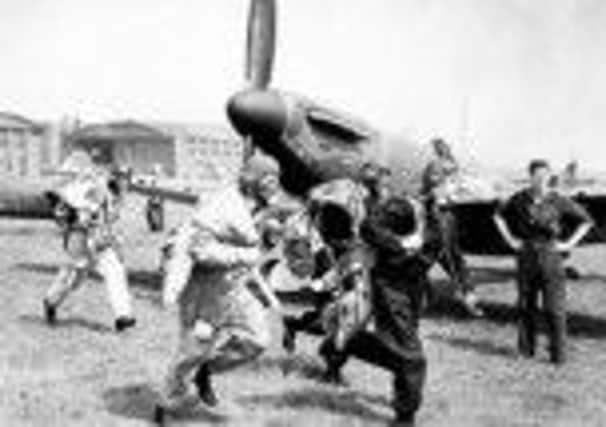Historic years that helped put the great in Great Britain


WE like to think of ourselves as a proud nation, one that is steeped in great moments of history.
But what is our proudest year, our greatest moment? It’s a question that, when asked, invariably causes disagreements and it’s one raised by writer and journalist Colin Brown in his book Real Britannia: Our 10 Proudest Years – the Glory and the Spin.
Advertisement
Hide AdAdvertisement
Hide AdThe book was inspired by a blunder from David Cameron during a visit to the United States back in 2010 when he referred to Britain as having stood shoulder to shoulder with America in 1940, even though the US didn’t enter the war until the following year after the Japanese attack on Pearl Harbour.
The Prime Minister then appeared on the Today programme where he stated his belief that 1940 was “the proudest year in British history bar none.” This perhaps not surprisingly, sparked further debate on the airwaves and led to a YouGov poll which came up with 10 possible contenders for Britain’s proudest year.
These included 1215, the year the Magna Carta was signed, and 1833 which saw the abolition of slavery throughout the British empire – a move led by Hull philanthropist William Wilberforce. The other years chosen were 1415, famous for the Battle of Agincourt, 1588, when we fended off the Spanish Armada, 1688, year of the Glorious Revolution and 1815 when the Duke of Wellington saw off Napoleon at Waterloo. The remaining four are from the 20th-century – 1928, when women won the vote, 1940, when the RAF defeated the Luftwaffe in the Battle of Britain, 1948 and the creation of the NHS and 1982, the year of the Falklands War.
Brown, who is appearing at the Morley Literature Festival in Leeds next month, says what’s interesting was the way people voted. “There was a split between men and women and also Labour and Conservatives. Labour supporters tended to opt for 1948 with the creation of the welfare state, while more women went for 1928 in support of the suffragettes, or 1833 and the abolition of slavery,” he says. “Conservative men went for famous victories with 1940 coming out on top.”
Advertisement
Hide AdAdvertisement
Hide AdWith his journalistic curiosity suitably piqued Brown, a former Yorkshire Post journalist who spent more than 30 years on the Westminster beat, set about looking at the famous events associated with each year more closely. “I went to locations that had something to do with these dates to get a sense of place and find out more about the stories behind these events that have become such an important part of our history.”
He says even though these dates are ingrained in British folklore and have been well-documented over the years, we don’t always have the full picture.
“At Agincourt the myth grew up that the longbow won the battle for Henry V and meant his small, bedraggled army were able to beat the cream of the French nobility,” says Brown.
He visited the Royal Armouries in Leeds where experts tested arrowheads from the battlefield against armour worn at the time and found they had little impact. The French armour, though, was very heavy and this, along with the slippery conditions in the rain-drenched fields, helped turn the battle in our favour.
Advertisement
Hide AdAdvertisement
Hide Ad“The French army was made up largely of veterans who were older and they quickly became exhausted and slipped over and became stuck. They were then killed with knives and axes which gives us a completely new view of the battle,” he says.
The idea of there being a proudest year is an interesting one, but is it also generational? For some people 1966, when England won the World Cup and the sixties were in full swing, is a memorable moment in time. Or what about last year? Will 2012 with the Queen’s Diamond Jubilee celebrations followed by the Olympics and Paralympics supersede all these dates in the future? Brown isn’t so sure. “Yes we saw people waving their Union Jack flags for Mo Farrah and Jessica Ennis and we all came together as a nation, but I’m not sure it’s lasted.”
So when it comes to Britain’s proudest year he agrees with David Cameron and sees 1940 as our finest hour. “Winston Churchill was the person who stood between us and capitulation and I think it’s important that the younger generation know what happened.”
Colin Brown is appearing at the Morley Literature Festival on October 7. Real Britannia: Our 10 Proudest Years – the Glory and the Spin, published by Oneworld Publications, is out now priced £18.99